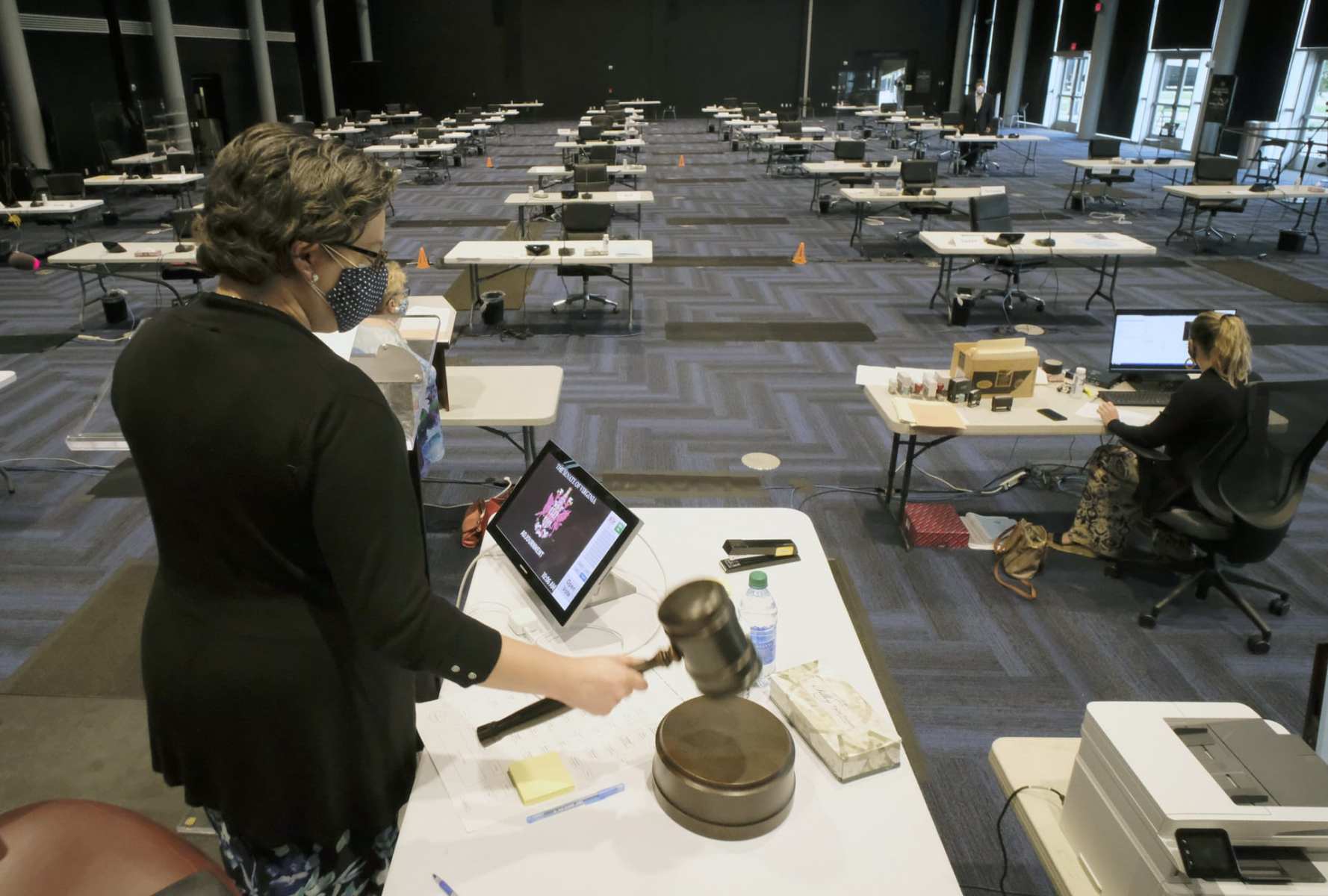The Virginia legislature on Monday passed a bill that is designed to help stabilize child care centers during the pandemic, a move experts say is a step toward tackling the larger complexities around quality affordable child care in America.
The bill would let recent background checks be used at more than one child care provider location and create a pilot program to allow federal funding to be distributed based on child enrollment instead of attendance. The state Senate unanimously passed the bill on February 5, and the state House unanimously passed it on Monday. It now heads to the governor’s desk.
The legislation is designed to let child care providers adapt amid the uncertainty of the pandemic. That industry in particular has faced immense hardship, which has had a ripple effect on the pay of child care workers — who are disproportionately women — and parents seeking consistent and affordable care.
“If we don’t have a strong child care industry then that places a burden on working parents and their ability to get to work and provide for their family,” said Kathy Glazer, president of Virginia Early Childhood Foundation, one of the organizations that supports the bill. “So it’s all kind of the ripple effect of economics and equity.”
Child care experts generally agree that bills aimed at stabilizing the bottom line of child care providers can make a difference, as long as policymakers also approve funding and other policies aimed at improving child care and other areas of early childhood education.
State lawmakers around the country are debating related policies, as well as relying on both federal funding and their own state spending.
Basing federal payments on child enrollment instead of attendance is among the child care recommendations from the left-leaning Center for American Progress, and one several other states have implemented as part of other emergency COVID-19 related policies. But it’s unclear how many are permanent policies.
“We’re excited by the state leadership we’re seeing that is both looking to stabilize early childhood but also to use this as an opportunity to look beyond that,” said Laura Dallas McSorley, director of early childhood policy at the Center for American Progress.
In New Mexico, lawmakers are considering a constitutional amendment that would set aside millions of dollars for early childhood education from a dedicated fund. In Massachusetts, a bill has been filed that would create universal child and after-school care and ensure families either qualify for free care or don’t spend more than 7 percent of their household income. Lawmakers in Vermont are considering a 10 percent cap on child care costs for families. Michigan Gov. Gretchen Whitmer prioritized child care assistance for low-income families in her latest budget.
The federal government has played a consequential role in helping the child care industry during the pandemic. In March 2020, Congress and then-President Donald Trump approved an additional $3.5 billion toward the Child Care and Development Block Grant program, the main pot of federal money that helps states provide low-income families with access to child care.
That money, plus other federal funds, helped Virginia put more than an additional $135 million toward child care since the start of the pandemic.
Nearly 45 percent of Virginia’s child care providers — more than 2,600 — closed at the onset of the pandemic, according to a news release from the governor. As of mid-October, about two-thirds of the state’s more than 6,000 child care providers were open, with nearly 1,000 more signaling plans to reopen.
In December, another round of federal funding provided $10 billion for the child care industry. President Joe Biden, who has proposed additional relief, has also announced a 10-year plan to tackle the nation’s caregiving gaps.
Virginia’s bill also requires the state to analyze the pilot program, as well as how to support “high-quality” child care services and “equitable compensation” for child care staff in an effort to figure out the true cost of child care in the state.
State Sen. Jennifer McClellan drafted the bill. McClellan, who first served in the House of Delegates, was the first member of that chamber to be pregnant while in office. She now has two children and says the child care issue is personal.
“Pre-COVID, there was already a shortage of quality, affordable childcare and early childhood education for everyone. COVID has made that worse. And that has had an impact not only on those children, but on women in the workplace,” she said. “And so, I wanted to begin the process of stabilizing the child care industry and shift us to the view that child care is essential and is a public benefit, and this bill starts that process.”
McClellan, who is running for governor in a crowded Democratic primary, has proposed spending $4 billion on universal child care and early learning. Jennifer Carroll Foy, a former state delegate who is also running for governor, supported paid family and medical leave when she was in the legislature and has committed to making child care more accessible. Terry McAuliffe, the former governor also seeking the nomination, has included child care equity in a recent policy proposal.
It’s too soon to know how effective Virginia’s bill will be, according to Megan Pratt, an assistant professor at Oregon State University who coordinates the Oregon Child Care Research Partnership. The partnership tracks the state-federal block grant program, which provides flexibility in how states participate.
Pratt said that it sometimes takes years for concrete data to show whether child care policy is working and that there can be a lot of variables in comparing one state to another.
“Attempts by researchers to see what’s working, what’s not working has been really messy, and it’s really hard to tell,” she said.
But Pratt applauded the Virginia legislature for trying. She suggested as policymakers debate ways to improve child care, it’s important that they consider how different communities define accessible quality child care. That includes providing stability for child care providers in home settings and addressing child care needs for people who work a range of hours.
“There’s an attention to providers and child care provider wellbeing and compensation that hasn’t been there in the past,” she said. “So the Virginia bill seems to be an example of that, which I think is really good.”






